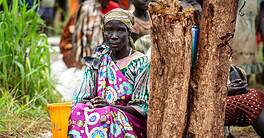Cheap assets and falling inflation are bringing investors back.
A positive macroeconomic outlook and a sharp decline asset prices are once again making Brazilian investments attractive for large international private equity firms, which are cautiously returning after three years of economic crisis. Airline Azul, car rental firms Movida Participaces and Unidas, and health-care Instituto Hermes Pardini have brought life into Brazil’s IPO market in recent months as well. Since June 2015, the country has had only one other IPO.
“There is positive momentum now,” says Mario Malta, managing director at Advent do Brasil a global private equity firm. “It is a combination of macroeconomic factors that are moving in the right direction, the government trying to attract money from abroad, and the stock market that is re-opening.”
Inflation fell to an unexpected low of 4.76% in the 12 months through February and is seen declining to under 4.5% in 2017. The Central Bank is expected to keep slicing short-term interest rates—even after February’s cut of 75 basis points. In 2016, Brazil launched a multi-billion-dollar privatization plan to auction oil, power rights, and infrastructure concessions in an attempt to boost private investment.
Advent has now fully invested Advent Latin American Private Equity Fund VI, which closed in 2014 for $2.1 billion—“the largest private equity fund ever raised for Latin America,” Malta says. Advent bought a minority stake in online financial technology Easynvest in March and in chemical distributor GTM Holdings in January. “We are coming from a very tough three years,” says Malta noting Advent never really left Brazil, not even in the worst of its economic troubles. “Concerns remain on the economic recovery and the stability of the political environment.”
Other entities have recently shown fresh will to stay in Brazil. In February, the mighty Canadian Pension Plan Investment Board, which established its Sao Paulo office in 2014, announced it is increasing its Brazilian team 20 people from 15, to expand equity and infrastructure investments.
“South America is recovering slowly, following the shock of low commodity prices and the unwind of the excesses from the boom. We believe Brazil has bottomed, but the political aftershocks of the government investigations are still being worked through,” Bruce Flatt, CEO at alternative asset manager Brookfield, explained in a February letter to shareholders. “From an investment perspective this has, and continues to, present us with great opportunities.”



